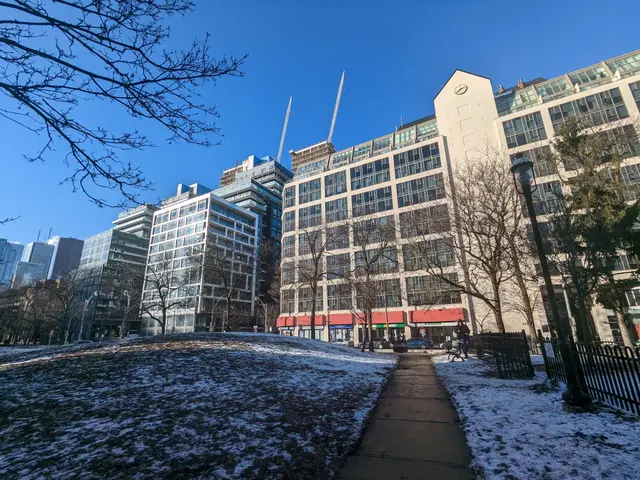Turning Tides: New York's Push for Transparency in Police Communications
Lawmakers in New York decide to protect the media's accessibility to coded police radio transmissions.
In a refreshing move, New York state lawmakers have taken a stance to maintain media access to police radio feeds. As law enforcement agencies continue to encrypt their communications, the proposed bill seeks to ensure journalists and emergency services organizations retain access to encrypted radio communications, with careful exceptions for sensitive data.
This battle cry, fondly known as the "Keep Police Radio Public Act," was triumphantly approved on Thursday. The legislation offers leeway for withholding information tagged as "sensitive," defined as any radio communication that might compromise a fair trial, expose confidential sources, or jeopardize investigative techniques. However, the state will need to establish precise guidelines on executing this access, balancing the demands of law enforcement with the media's needs.
For the media fraternity, this measure represents a significant win. Reporters and photographers often rely on police radio chatter to navigate towards crime scenes and breaking news. Senate Deputy Leader Michael Gianaris, a Democratic sponsor of the bill, stated, "Preserving access to police radio is essential for a free press and protecting the freedoms and protections afforded by public information availability."
The New York Police Department has defended their decision to encrypt radio feeds, arguing that it is crucial for the safety of law enforcement personnel, as well as protecting the privacy of victims and witnesses. A departmental statement emphasized, "Encrypting police radio communications is vital for both law enforcement safety and the privacy interests of victims and witnesses. Allowing real-time access could potentially compromise officer safety and victim privacy."
The bill now lands on the desk of Governor Kathy Hochul, who has promised a detailed review of the proposition. As the dust settles, the question remains: how will New York forge a path between public transparency and law enforcement's legitimate concerns?
Headlines of the Moment
- Trump Imposes Travel Ban, Targeting 19 Countries
- National Sheriffs' Association Slams Federal 'Sanctuary' List
- Stay Ahead of the Game: Tips for Proactive Bone Health Management
- Oregon's Best Swim Spot? You'll Find it Inland, Not on the Coast
- ICE Officers Stranded in Djibouti with Deported Migrants in a Shipping Container
Insights From the Echo Chamber
- Sensitive Information: The legislation allows for exemptions of information deemed "sensitive," which includes any radio communication that might:
- Compromise a person's right to a fair trial or impartial adjudication.
- Identify a confidential source or disclose confidential information relating to a criminal investigation.
- Reveal criminal investigative techniques or procedures, except for routine techniques and procedures.
- Access to Encrypted Communications: Any law enforcement agency that encrypts its radio communications must ensure that all communications, except sensitive information, are accessible in real-time to emergency services organizations and professional journalists.
- Credentialing Process: The state will establish a process for verifying credentials to grant real-time access to radio communications, which should take no more than five business days to complete.
- Regulations: The state will also develop rules and regulations necessary to implement the provisions of the bill.
- Effective Date: The bill will become law ninety days after it's signed into action.
- State Rules: The state will need to create specific rules balancing law enforcement needs with media access needs.
- Despite New York's push for police transparency, Seattle is considering tightening its policy-and-legislation on police-radio access, sparking a debate about the balance between law enforcement safety and media needs in politics.
- In contrast to New York's recent approval of the 'Keep Police Radio Public Act,' a proposed policy in Seattle's policy-and-legislation meetings suggests limiting media access to police radio communications, drawing criticism from the general-news sector.







